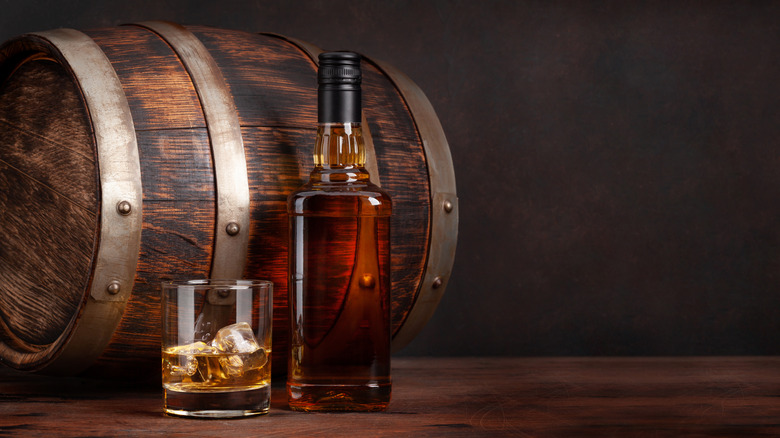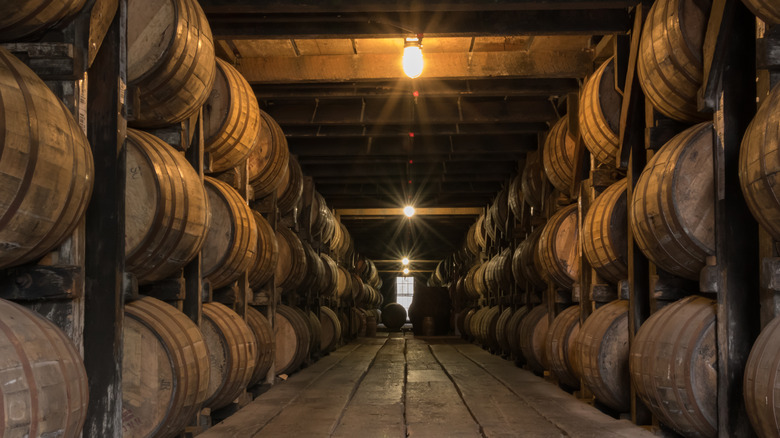Here's Who A 'Cooper' Is When Making Bourbon
Bourbon is a type of whiskey that is made mostly of corn and is unique to the United States. One of the things that make bourbon special is that it does not age once bottled — it has to be aged in barrels. By U.S. law, bourbon barrels can only be used once. After that — even though these barrels are made to last a long time — they must be retired. This means that for every distiller who makes bourbon, a solid relationship with a barrel-making company is necessary.
This barrel-making entity is referred to as a "cooperage," and the person who makes the barrels is a "cooper." The term is likely derived from "cupa," which is Latin for "vat." Even though you might have enjoyed a glass of bourbon before without knowing the significance of this term, without a cooper, the bourbon industry would come to a standstill.
The role of the cooperage
Cooperages specialize in making casks, barrels, and vats. For centuries, barrels were a go-to vessel for storing and transporting any number of wet and dry goods. Coopers were taught the trade through apprenticeships, and these barrels were then used across industries. This has largely fallen out of practice but today, cooperages can specialize in making barrels specifically for bourbon. You will find a higher concentration of these cooperages in states like Kentucky and Missouri.
Coopers make bourbon barrels through a special handcrafted process that involves specially shaping the wood, "raising" the barrel, firing it with live flames, and fitting the barrel with hoops. This process is an artisan skill that is impressive in its own right but also contributes significantly to the taste and quality of the finished product. So the next time you're enjoying a nice glass of bourbon, remember to think of the hardworking cooperage that made it possible.

